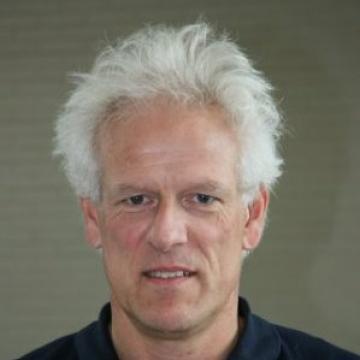prof. Wim Declercq (PhD)

Principal investigator - Lab for Molecular Signaling and Cell Death - Molecular skin biology group
Associate professor (Faculty of Sciences, UGent)
Research focus
The Declercq lab mainly tries to unravel molecular mechanisms of skin tumor development and progression using in vitro and in vivo approaches. Therefore we develop relevant novel mouse models to come to a better understanding of the in vivo functions of the molecules under study. Currenlty we are adressing the role of DeltaNp63alpha and Receptor interacting kinases (RIPKs) in the development of skin cancer, with a main focus on RIPK4. The Declercq lab mainly tries to unravel molecular mechanisms of skin tumor development and progression using in vitro and in vivo approaches. Therefore we develop relevant novel mouse models to come to a better understanding of the in vivo functions of the molecules under study.
Biography
Wim Declercq was a lecturer in Molecular Biology since 2000 at the University of Ghent and became Professor in Molecular Biology at the Faculty of Sciences since 2008. Wim Declercq has been active in the field of TNF receptors, caspases, cell death, keratinocyte differentiation and skin cancer and inflammation. His team is unraveling the functions of proteins involved in cell death, epidermal barrier formation and homeostasis of the skin. These proteins have often functions in cancer and inflammation. He published more than 100 manuscripts in a1 journals (international, peer reviewed) and 9 book chapters in the field of cell death and inflammation research. His work has been cited about 9000 times.
Research team
- prof. Wim Declercq - principal investigator, associate professor
- Lauren Herron - doctoral fellow
- Barbara Stepic - doctoral fellow
- Barbara Gilbert - technician
Key publications
- RIPK4 activity in keratinocytes is controlled by the SCFβ-TrCP ubiquitin ligase to maintain cortical actin organization. Tanghe G, Urwyler-Rösselet C, De Groote P, Dejardin E, De Bock PJ, Gevaert K, Vandenabeele P, Declercq W. Cell Mol Life Sci. 2018 Aug;75(15):2827-2841. doi: 10.1007/s00018-018-2763-6. Epub 2018 Feb 12. (PMID: 29435596)
- Keratinocyte-Specific Ablation of RIPK4 Allows Epidermal Cornification but Impairs Skin Barrier Formation. Urwyler-Rösselet C, Tanghe G, Leurs K, Gilbert B, De Rycke R, De Bruyne M, Lippens S, Bartunkova S, De Groote P, Niessen C, Haftek M, Vandenabeele P, Declercq W.J Invest Dermatol. 2018 Jun;138(6):1268-1278. doi: 10.1016/j.jid.2017.12.031. Epub 2018 Jan 6.
- ATG4B inhibitors with a benzotropolone core structure block autophagy and augment efficiency of chemotherapy in mice. Kurdi A, Cleenewerck M, Vangestel C, Lyssens S, Declercq W, Timmermans JP, Stroobants S, Augustyns K, De Meyer GRY, Van Der Veken P, Martinet W.Biochem Pharmacol. 2017 Aug 15;138:150-162. doi: 10.1016/j.bcp.2017.06.119. Epub 2017 Jun 19.
- Elevated ANp63a Levels Facilitate Epidermal and Biliary Oncogenic Transformation.
Devos M, Gilbert B, Denecker G, Leurs K, McGuire C, Lemeire K, Hochepied T, Vuylsteke M, Lambert J, Van Den Broecke C, Libbrecht L, Haigh J, Berx G, Lippens S, Vandenabeele P, Declercq W.J Invest Dermatol. 2017 Feb;137(2):494-505. doi: 10.1016/j.jid.2016.09.026. Epub 2016 Oct 7. - Vaccination with Necroptotic Cancer Cells Induces Efficient Anti-tumor Immunity, Cell Rep. 2016 Apr 12;15(2):274-87. doi: 10.1016/j.celrep.2016.03.037. Epub 2016 Mar 31.
- A novel RIPK4-IRF6 connection is required to prevent epithelial fusions characteristic for popliteal pterygium syndromes, Cell Death Differ. 2015 Jun;22(6):1012-24. doi: 10.1038/cdd.2014.191. Epub 2014 Nov 28.
- Keratinocyte-specific ablation of the NF-κB regulatory protein A20 (TNFAIP3) reveals a role in the control of epidermal homeostasis, Cell Death Differ. 2011 Dec;18(12):1845-53. doi: 10.1038/cdd.2011.55. Epub 2011 May 13.
- p63, a story of mice and men, J Invest Dermatol. 2011 Jun;131(6):1196-207. doi: 10.1038/jid.2011.84. Epub 2011 Apr 7. Review.
Contact & links
- Inflammation Research Center, Technologiepark 71, 9052 Ghent, Belgium
- Declercq lab